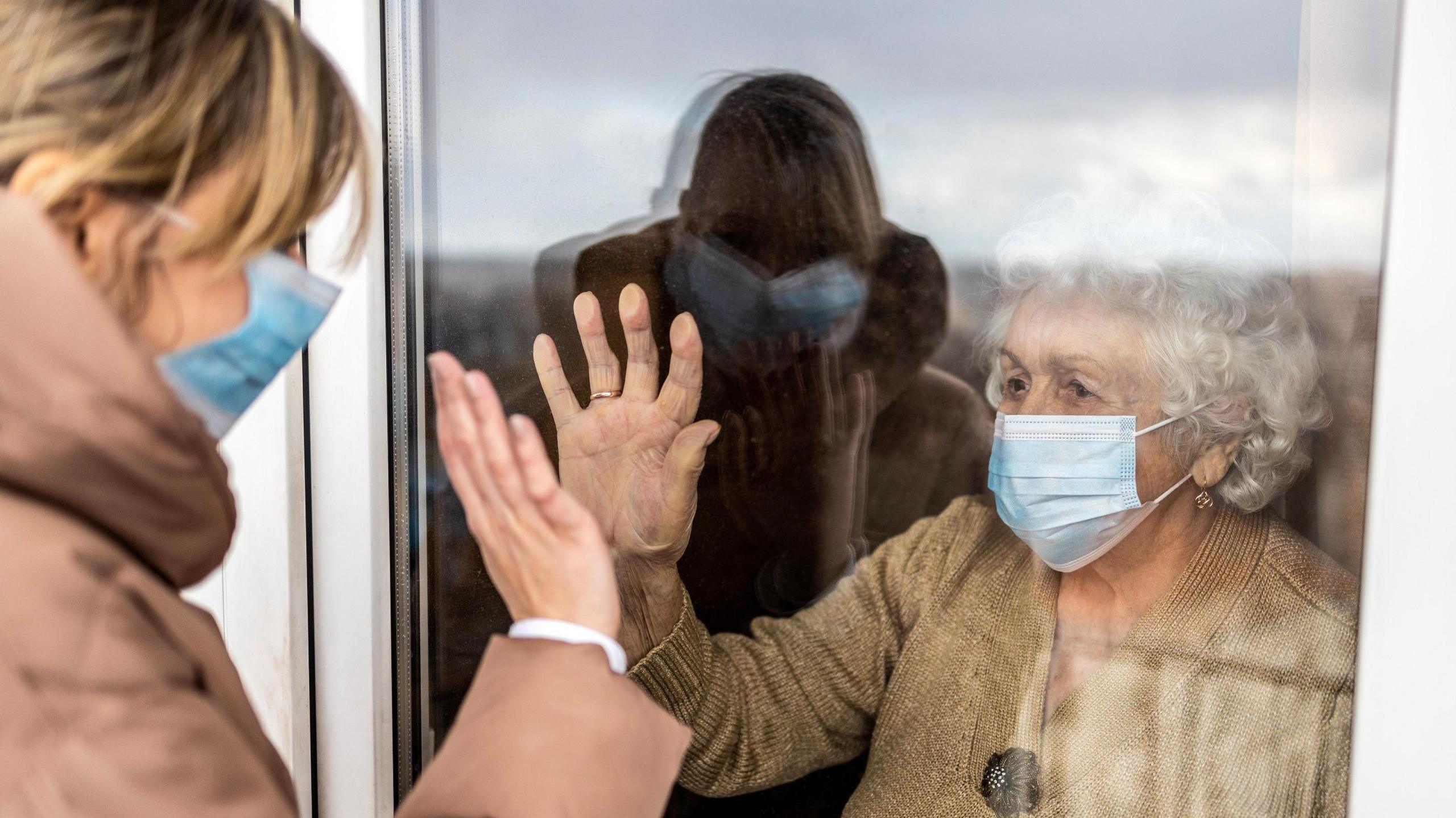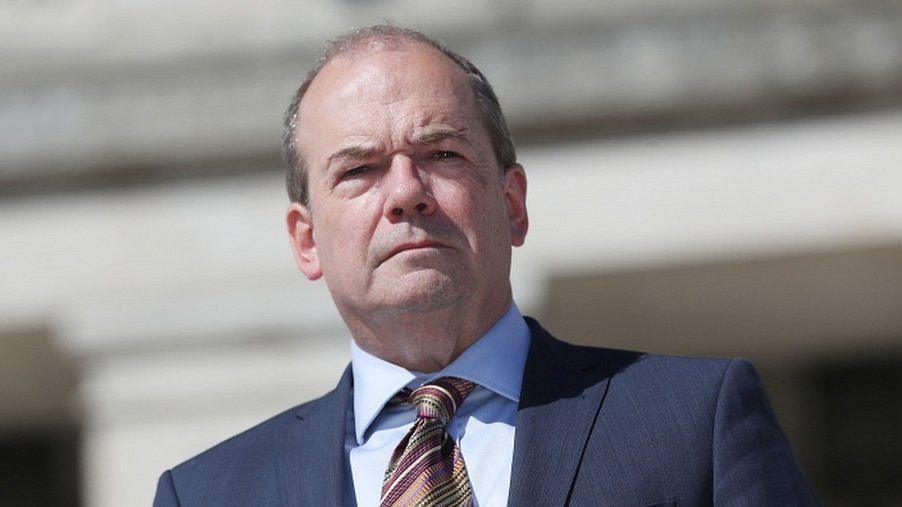'I never saw my dad again after lockdown', Covid-19 inquiry hears
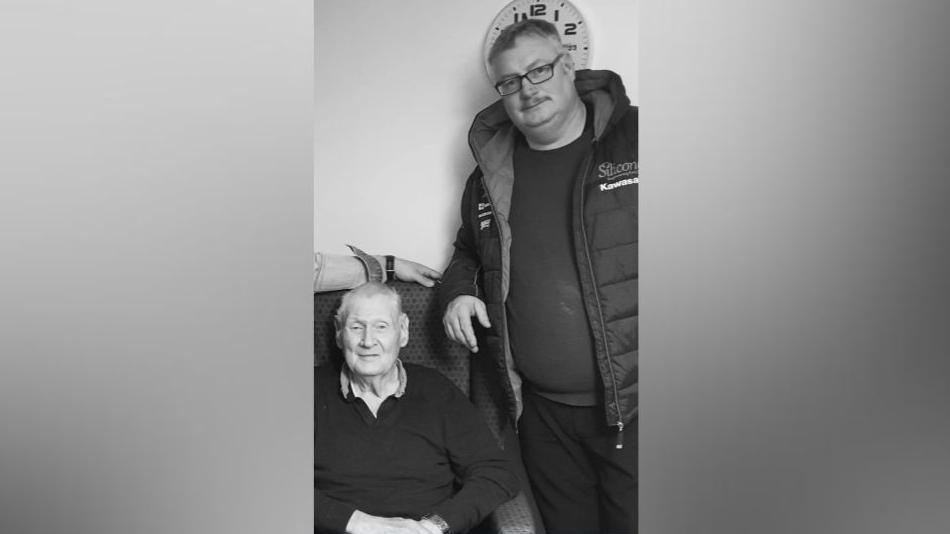
Ivor McQuitty (L) and Gregory McQuitty (R)
- Published
A County Antrim man whose father died during the Covid-19 pandemic has told the Covid-19 Inquiry that he never saw his dad again after lockdown as the care home his father was in closed without notice to families.
Ivor McQuitty, 84, died in May 2020 in hospital from Covid. He also had dementia and was profoundly deaf in both ears.
Speaking publicly for the first time about his father's death, Gregory McQuitty described his father as the most honest, hardworking and best man whom he models his life on.
Over five weeks, The Covid-19 Inquiry, sitting in London, has been hearing testimony from the care sector, including residents and families, about how they were supported during the pandemic.
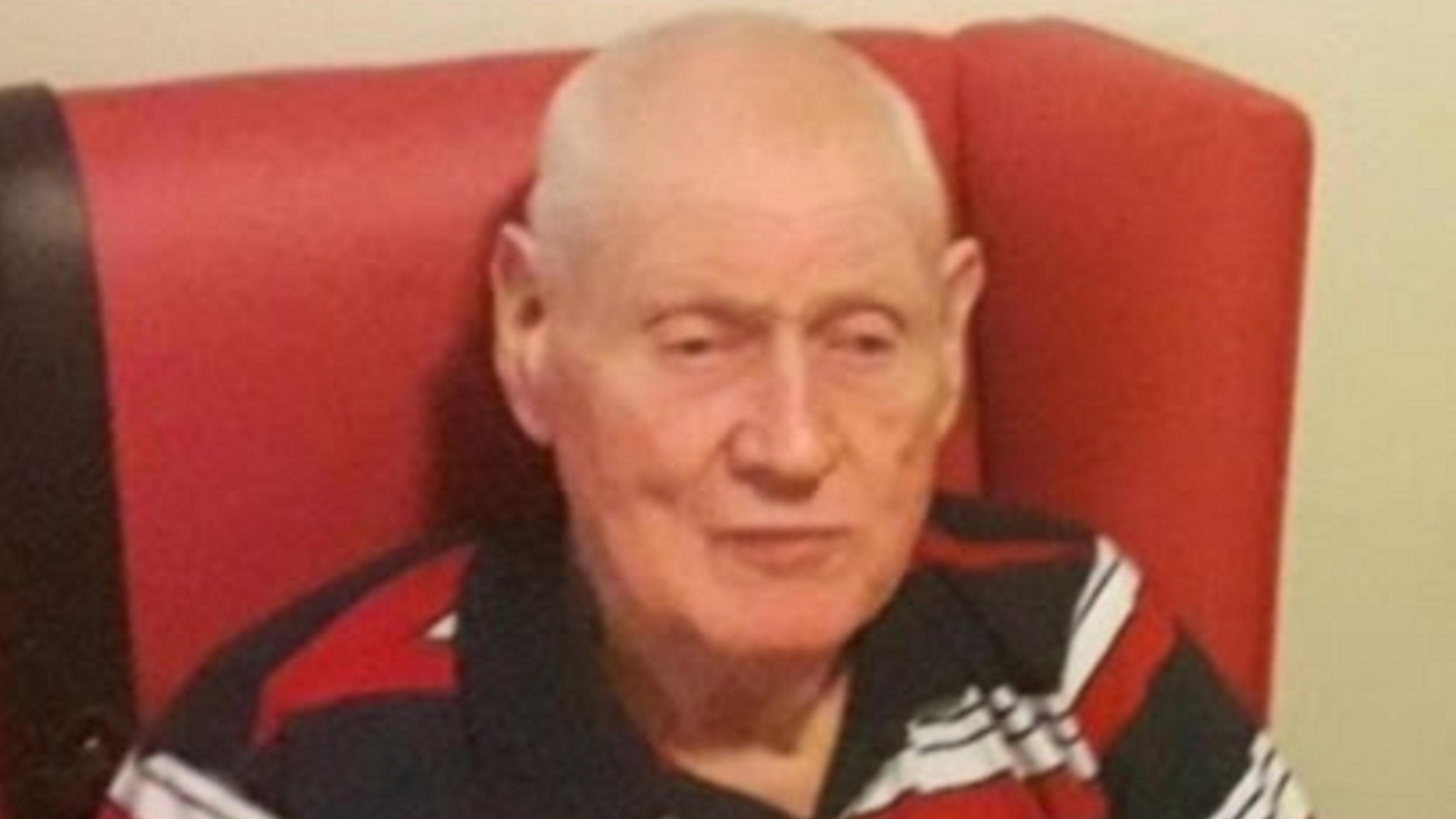
Ivor McQuitty died in 2020 from Covid
Counsel for the NI Covid Bereaved Families Group said the "removal of contact with loved ones is for many a price too great to pay, it was too cruel, painful and must never be repeated".
Mr McQuitty said after lockdown the care home didn't contact the family to provide an update on their father and any contact was triggered by Mr McQuitty's family.
Gregory McQuitty said his father's death certificate said he died from Covid and secondly by heart failure.
"There are so many unanswered questions around my father's death... we just don't know what happened," he told the inquiry.
Emotional evidence
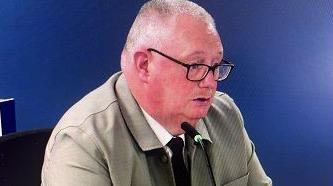
Gregory McQuitty gave evidence to the Covid-19 Inquiry in London
Before his father passed away a ward sister used an iPad to allow the family to communicate with their dad but as he was profoundly deaf, Gregory said it was "too distressing".
He told the inquiry his father's funeral was clinical and "nothing about it was near normal" with only 11 people allowed to attend.
"We were able to carry the coffin about 10 metres, there was no wake no stories for the grandchildren no handshakes. The open book has not been closed."
After his father's death, medical records revealed he had attended hospital 19 times due to falls but the family was only notified on four of those occasions.
Mr McQuitty said he wrote to the health minister at the time, Robin Swann, three times following his father's death but didn't receive a reply.
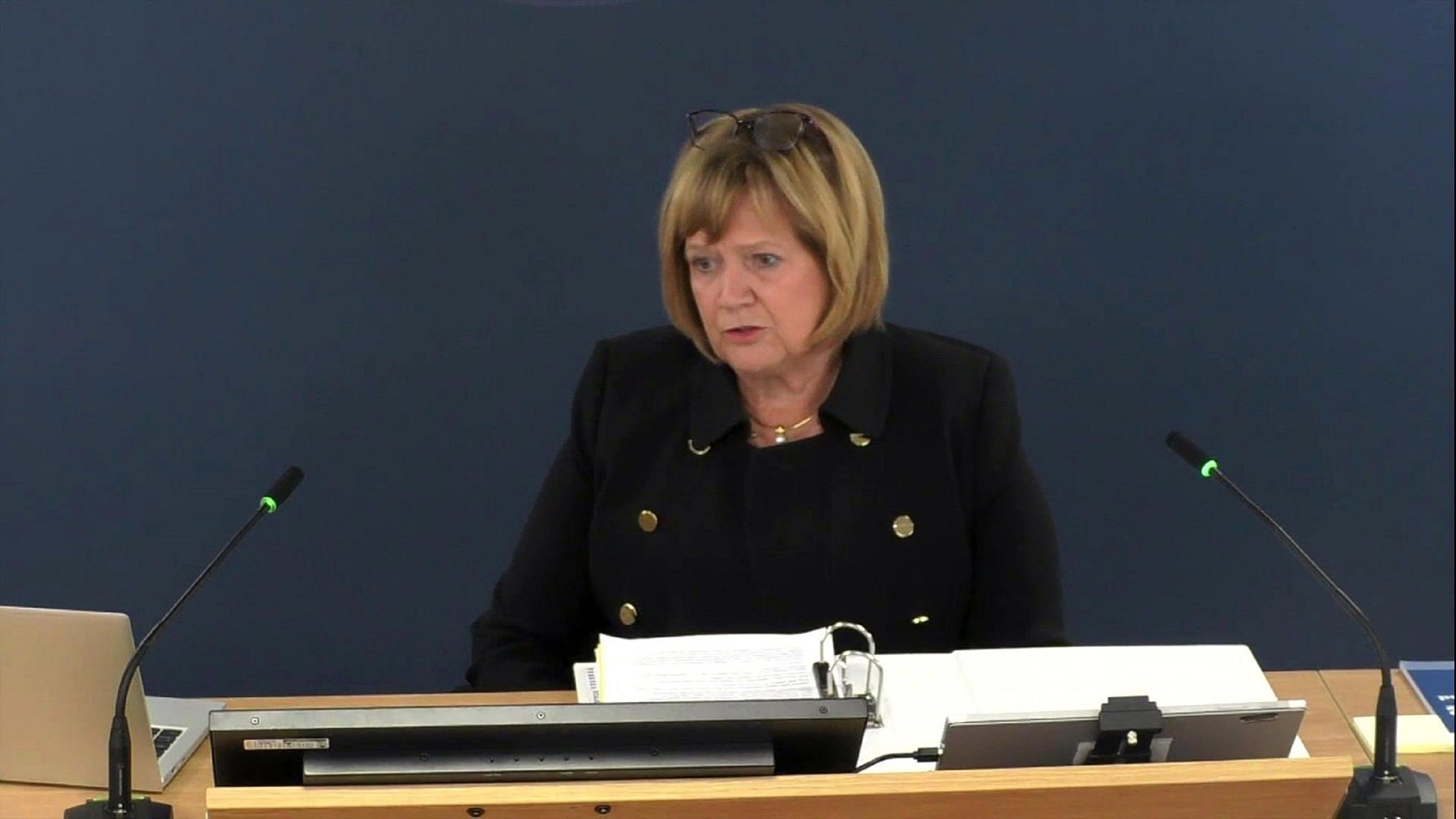
Covid Inquiry chair Baroness Hallett
Mr McQuitty, who was emotional throughout his evidence, said while he was extremely nervous it was important that he spoke up for his father.
Clearly moved by the evidence, The Chair of the Inquiry Baroness Hallett told Mr mcQuitty: "Think how your father benefited from such a close and loving family."
She went on to thank him for travelling to London.
After 18 days of evidence, in its closing submissions, counsel for the bereaved families in the UK said while the fragility of the care sector was widely known before the pandemic the inquiry has uncovered that the situation is no better.
Counsel added that the lack of parity between health and social care continues to manifest itself in poorer wages among social care staff and the recognition of their work and expertise.
Call for care home system reform
The NI bereaved families for justice (NIBFFJ) said reform of the system needs to start now and recommendations for the social care sector should be robust and applied as soon as possible.
It also said care homes were not a government priority during the pandemic with "residents' rights undermined and oversight mechanisms withdrawn at a time of urgent need".
According to NICBFG withdrawing regulatory inspection by the RQIA "removed critical oversight from care homes during a time of crisis".
Brenda Campbell KC asked why "so many in social care had to endure so much suffering, for so long" and who so many had to die along?
She added that the fragility of the social care sector before the pandemic was well-documented, and she said governments and civil servants had been told before and during the pandemic that those reliant on the social care service required special consideration.
Ms Campbell said too often during the inquiry they heard the refrain accompanied by "a shrug of the shoulders" as though it was the answer and not the problem that the social care sector was "the Cinderella service".
She said when it comes to bolstering the care sector for the future there is a need to "collaborate and consult" and a need for "parity" between health and social care so that each receives the necessary respect and investment.
- Published1 day ago
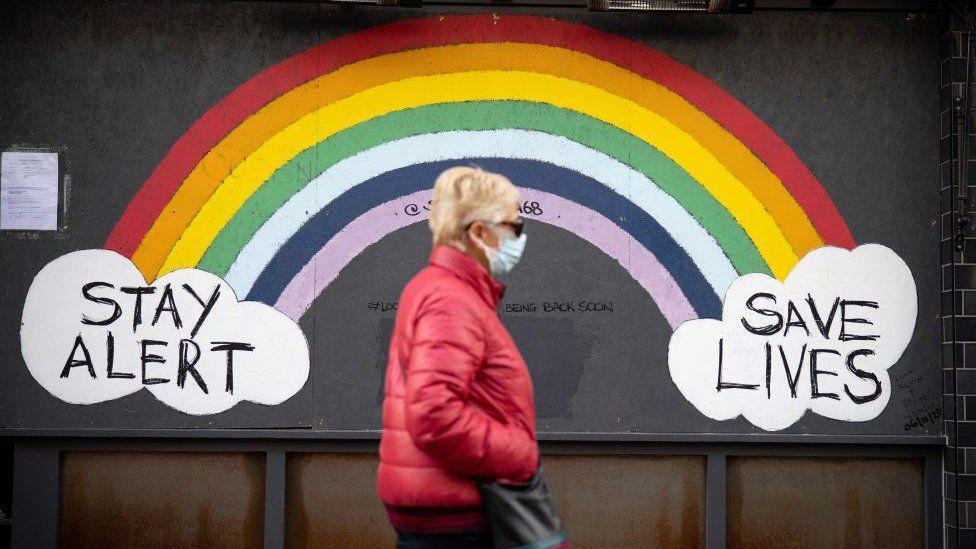
- Published23 July
